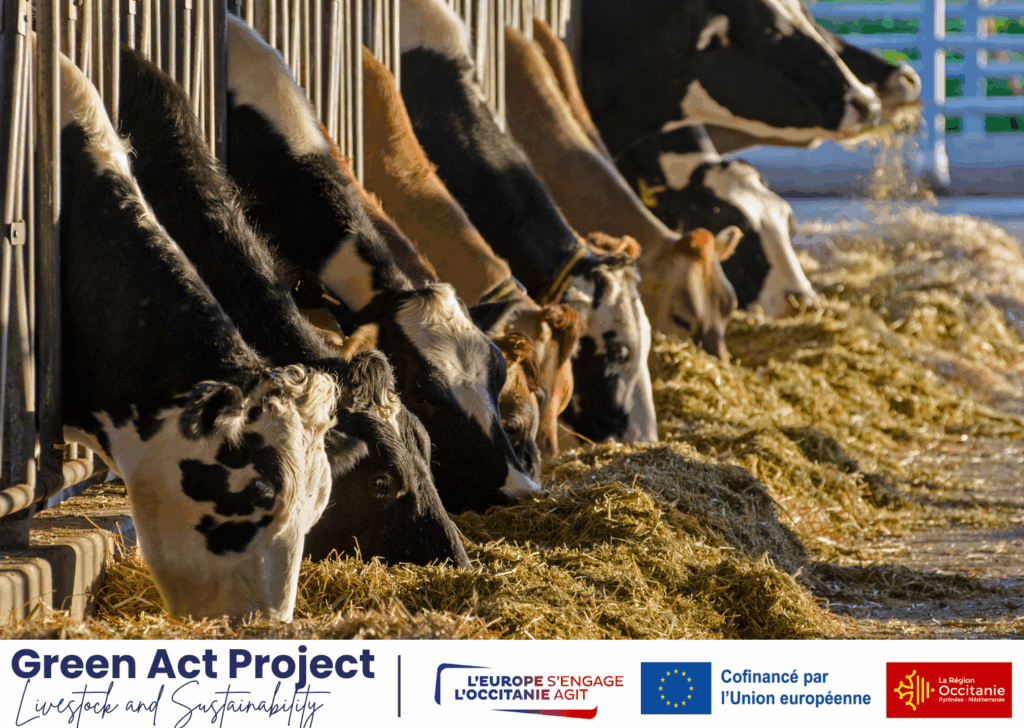The livestock of tomorrow will involve a sustainability component. In response to the weight of greenhouse gases from agriculture, Phodé’s R&D is working on designing innovative natural solutions to reduce the methane produced by ruminants.
Named Green Act, this project addresses a dual challenge: feeding a growing global population while reducing the environmental impact of farming, particularly livestock farming, which is responsible for significant greenhouse gas emissions, especially methane.
Methane, which is 25 to 30 times more warming than CO₂, is a major climate concern in France, where livestock accounts for 68% of national methane emissions, mainly due to enteric fermentation in ruminants and the management of animal waste.
The Occitanie region France’s leading agricultural region with 3 million hectares of farmland, has strategic priorities in its FEDER Occitanie programme that focus on research and innovation, as well as on the use of cutting-edge technologies. By aligning with this European support scheme, Phodé positions itself as a pioneer in the development of sustainable livestock farming.
The Green Act project aims to develop innovative natural solutions capable of reducing emissions of methane per cow, while also improving the management of nitrogenous and ammonia‑rich waste.
The project is based on four major pillars:
- Reducing greenhouse gas emissions through effective natural solutions, with no negative impact on animal performance.
- Preserving biodiversity and animal welfare, within an agro‑ecological framework.
- Optimising waste management to limit pollution and promote a circular economy.
- Boosting the regional economy by supporting innovation and the growth of an Occitan company.
The main scientific challenge lies in the difficulty of selectively targeting methanogenic bacteria without disturbing other essential microorganisms involved in digestion (currently, no natural active substance offers this selectivity).
By tackling these issues, Green Act is fully aligned with FEDER Occitanie’s priorities: supporting economic recovery, encouraging transformation toward a smart and innovative economy, promoting more sustainable agriculture, and strengthening regional competitiveness.


